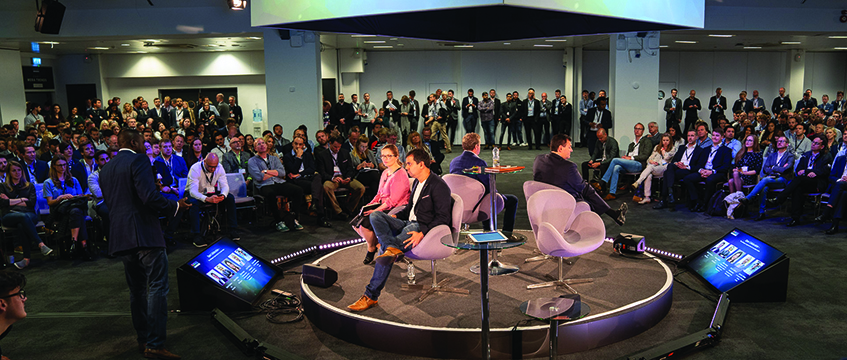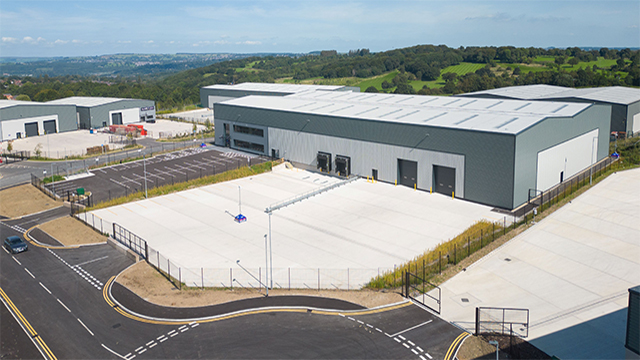Proptech, according to Fifth Wall’s principal and co-head of investments Roelof Opperman, is like the Big Bang.
It has exploded into the property scene, causing huge levels of disruption – and its emergence now seems irreversible. Meanwhile, the industry is struggling to make sense of what it all means, says Opperman.
“It’s a very confused period. You have real estate people trying to do technology, and you have technology people trying to do real estate. The roles are confused and people are trying to figure out what’s happening,” he says.
Opperman was speaking at the Future PropTech event in London this week, an event supported by EG that seeks to establish a greater crossover between tech and real estate.
If you missed it, here are our five key takeaways from the day:
1. Softbank “struggles” to find commercial proptech investment opportunities
Venture capital powerhouse SoftBank has often hit global headlines for digging into its deep pockets and signing eyewatering multi-billion dollar cheques for co-working giant WeWork. But its Vision Fund partner Justin Wilson said SoftBank has “struggled” to find investment opportunities outside the residential sector.
“I would say we’ve struggled with finding the type of growth opportunities on the commercial side that we’ve found on the residential side,” he says. “We’ve tended to see a little more fragmentation, and a lack of full staff solutions and innovators that are solving a whole host of problems that a lot of operators are actually experiencing.
“It’s hard to find the type of very late stage scale companies that fall within what we tend to look at.”
So what kind of company is SoftBank most interested in investing in? Wilson said sectors that are “going to be a little more resilient through downturns” are those that Softbank is casting its attention upon – for example, tech companies tapping into residential rental opportunities.
2. Moderne Ventures looks to AI, sustainability, robotics and senior living
Moderne Ventures founder and managing partner Constance Freedman outlined four areas of investment the early stage capital fund is looking at investing. She identifies sustainability and AI as “table stakes” investment opportunities for the venture fund. Tech that provides sustainability solutions was becoming more important, she says, as occupiers are becoming increasingly conscious about environmental challenges.
“We are looking in a lot of things around sustainability, which I think is much more interesting here in Europe than it is in the States,” she says. “Even if you don’t care about the planet, you should be caring about the millennials that care about sustainability.”
Freedman says the growth of robotics and its links with the senior living industry was also an area of interest for investment. She predicts these areas will become even bigger within the next two to three years.
“Robotics is really making an impact,” she says. “I think we’re going to see robot dogs that will help deliver packages and drones are making a big difference. We’re going towards this helping the baby boomers in the senior community, which can make a big difference in the senior housing [sector].”
3. Sharing data is an “age-old problem”…
The “age-old problem” in the property industry, according to MRI Software chief executive Patrick Ghilani, is getting companies to share more of their data. Ghilani says MRI Software research across 400 global real estate companies shows that 53% of them were investing in tech companies, but those same companies were making those investments sign contracts ensuring they will not share their company’s data.
He adds that while he speaks to clients who are eager for data on their competitors, they are reluctant to share their own in return.
“It’s an interesting phenomenon,” says Ghilani, adding that this is a problem that needs “sorting out”, as the property industry is operating in contrast to “a world where we have massive access to data”.
He adds: “If we all have data, we would be bigger, better, and more successful across the board.”
4. … but we could be seeing more of it
Aberdeen Asset Management global head of real estate business platform Claire George says that while there are some datasets the company will not share, collaborating with competitors was something the firm “could do” in the future.
She says managing and making data easily accessible internally was “very important” for the business, but the organisation was much more reluctant to share it more widely.
“There are datasets in the market that we could collaborate with our competitors on to try and build up a knowledge base of the marketplace,” she says “We haven’t started to do that yet with our competitors, but this is something we could do to drive efficiencies in the real estate business.”
However, she adds: “There is a lot of data I don’t think we would ever share – that is commercial data on our fees and the like. We would aim (and we do) to sell ourselves off our ability to make decisions off the data we have.”
5. Autonomous buildings are closer than we think
Around 80% more information is used today to create buildings, compared with 20 years ago, according to Arup global automation leader Fiona Cousins.
With a wealth of data to hand, we need to develop our AI capabilities to ensure the “right data is being pushed towards us”, added Claire Penny, global leader Watson IOT for Buildings at IBM.
With the help of AI, she said, buildings will be able to run autonomously, without the need for decision-making humans.
TechTalk Radio podcasts
TechTalk Radio podcasts Interested in how tech is impacting the real estate business? Subscribe to EG’s free TechTalk Radio podcast, a weekly show in which we interview start-ups, growing businesses and the well-established in tech and those in the real estate industry that are transforming the way they operate. EG’s TechTalk Radio podcast is on Apple Podcasts, Spotify and at techtalkradio.podbean.com
To send feedback, e-mail lucy.alderson@egi.co.uk or tweet @LucyAJourno or @estatesgazette











